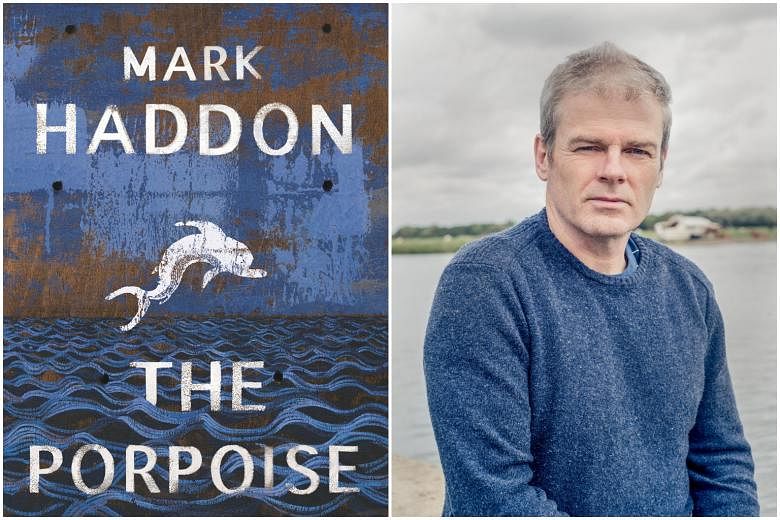FICTION
THE PORPOISE
By Mark Haddon
Chatto & Windus/ Paperback/ 317 pages/ $29.95/ Books Kinokuniya
4 stars
Here is a story. A plane crashes into a grain silo, killing those aboard. One passenger, a beautiful actress, is heavily pregnant with her first child. Only the baby survives.
Here is another story. A man has a daughter, whom he loves in the worst way. He has wealth and, thus, power, so there is nothing anyone does about it. A young man comes to the house and discovers the abuse, but is in turn discovered. He flees. The girl is left behind.
A third story. A man, not a good man, writes a play, or part of one. In it, he uses the rape of a young girl by her father as a plot device. Then he dies of a heart attack.
There are few storytellers like British writer Mark Haddon, of The Curious Incident Of The Dog In The Night-Time fame. In his marvellous new novel, The Porpoise, he does not so much tell stories as line a lot of them up and send the arc of his yarn singing through them all at once like an arrow, clean and true.
The Porpoise takes on the Shakespeare play Pericles, Prince Of Tyre but begins in the modern day with lovely, tragic Angelica of the dead mother and rapist father.
A suitor, Darius, discovers her father's sins and barely escapes with his life onto a yacht, The Porpoise. Then Darius sails out of Angelica's story and into the ancient past, quite literally, where he becomes Pericles.
The novel flits back and forth with a blithe disregard for the narratival gravity of space and time. It moves from Pericles' sea-tossed exploits in antiquity, to Angelica wasting away in the modern day, to Jacobean London, where George Wilkins, invidious pimp and co-writer of Pericles, is escorted by his erstwhile collaborator William Shakespeare to the afterlife.
The Porpoise is a fantastic melange of pirates, plague, court intrigue and women rising out of the water with vengeance in their teeth. Haddon writes beautifully, too: stars are "powdered glass on velvet"; a man cradles the hurt of a friend's death "like a broken bone".
But what is most splendid to see is the way he wrestles the original play to the ground. Women with few lines and little or no name become full, complex characters. Angelica is one; Chloe, the princess who marries Pericles, is another. Their hardships are no less; in fact, they are rendered the more devastatingly. But, for a change, they get to tell the story.
If you like this, read: Ocean Sea by Alessandro Baricco, translated by Alastair McEwen (Canongate Books, 1999, $17.59, Books Kinokuniya). A group of people, including an artist who paints seascapes with seawater, a fragile princess and a mysterious sailor, check in at a remote seaside hotel run by precocious children.


